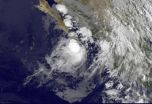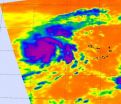Spare the rod, spoil the child?
New Universite de Montreal study looks at effects of harsh parenting
2010-09-22
(Press-News.org) Grabbing a child firmly by the arm, yelling and repeatedly punishing him or her may not be without long-terms risks, according to researchers from the Université de Montréal. They are studying how this harsh parenting can impair the emotional development of a child, possibly leading to anxiety disorders such as social phobia, separation anxiety and panic attacks.
"Several studies have shown that coercive parenting practices are linked to anxiety," says Françoise Maheu a professor at the Université de Montréal's Department of Psychiatry and lead investigator of the study. "We know that common practices such as spanking or excessive punishment do not instill a strong discipline. Quite the opposite, they have a lasting psychological impact on children."
Showing the physiological effect
Maheu and her team are investigating specifically how the anatomy or physiology of the brain is affected by this parenting. They are in the process of recruiting 120 youths aged 12 to 17 years. These youths will be split into four groups according to two variables: their current anxiety symptoms and their parent's current harsh parenting practices. While doing behavioural tests, the children will be subjected to functional magnetic resonance imaging (fMRI), where their brain activity (cerebral activity) will be measured. Maheu will then be able to correlate brain activity with fear and anxiety.
"My hypothesis is that two specialized structures, the amygdala and the anterior congulate cortex, which form the neural fear circuit, play a role in mediating the anxiety associated with harsh parenting. We are investigating these structures because they are strongly associated with the processing of threat cues" says Maheu.
"Investigating the links among harsh parenting, fear circuitry and anxiety in youths will provide key insights on the developmental neurobiology of harsh parenting and anxiety," adds Maheu. "Understanding this while individuals are young is crucial as it could lead to early interventions that would effectively interrupt a development trajectory early in its course, before anxiety becomes chronic."
INFORMATION:
More about anxiety disorders
According to research findings, anxiety disorders may result from a combination of biochemical imbalances, genetic factors and stress. School, moving, illness, poverty, and peer pressures can all contribute to the development of an anxiety disorder. If symptoms are not recognized and treated these disorders may lead to alcoholism, difficulties maintaining relationships, depression and in certain cases, suicide.
Partners in research:
This study is being funded by the Canadian Institutes of Health Research and the Fonds de la recherche en santé du Québec.
On the Web:
Université de Montréal: www.umontreal.ca/english
Media contact:
Julie Gazaille
Press attaché
University of Montreal
Telephone: 514 343 6796
Email: j.cordeau-gazaille@umontreal.ca
Twitter: http://twitter.com/uMontreal_news
ELSE PRESS RELEASES FROM THIS DATE:
2010-09-22
PHILADELPHIA (September 21, 2010)—Molecularly targeted therapies can reduce tumors rapidly. However, not all tumors respond to the drugs, and even those that do often develop resistance over time. Looking for a way to combat the problem of resistance, researchers at Fox Chase Cancer Center hypothesized that hitting already weakened cancer cells with a second targeted agent could kill them—but only if it was the right second agent.
One well-validated molecular target for anti-cancer drugs is the epidermal growth factor receptor, or EGFR. Using a novel screening approach, ...
2010-09-22
OAK BROOK, Ill. – September 21, 2010 – Researchers from Italy have reported results from more than 10 years of follow-up showing that the placement of multiple endoscopic stents for the treatment of postoperative biliary strictures remains excellent with a low rate of stricture recurrence after this lengthy period of time. When strictures do recur, they can be safely and successfully retreated endoscopically. The study appears in the September issue of GIE: Gastrointestinal Endoscopy, the monthly peer-reviewed scientific journal of the American Society for Gastrointestinal ...
2010-09-22
Impulsive behaviour can be improved with training and the improvement is marked by specific brain changes, according to a new Queen's University study.
A research team led by neuroscience PhD student Scott Hayton has pinpointed the area of the brain that controls impulsive behavior and the mechanisms that affect how impulsive behavior is learned. The findings could have a significant impact on the diagnosis and treatment of several disorders and addictions, including ADHD and alcoholism.
"In the classroom, kids often blurt out answers before they raise their hand. ...
2010-09-22
Tropical Storm Georgette formed pretty quickly and the GOES-11 satellite captured her clouds extending over extreme southern Baja California and western Mexico today. Georgette formed just south of Cabo San Lucas this morning and is headed for a Baja landfall.
The Geostationary Operational Environmental Satellite or GOES-11 is stationary in its position in space, watching over the weather in the western U.S. GOES-11 captured an infrared image of Tropical Storm Georgette's rounded cloud cover stretching north into Baja California, Mexico at 13:15 UTC 9:15 a.m. EDT today, ...
2010-09-22
This Atlantic hurricane season has now spawned 14 tropical depressions and 12 of them have strengthened into tropical storms. The latest is now called Tropical Storm Lisa and is in the Eastern Atlantic Ocean. NASA's Aqua satellite flew over Lisa when she was still a low pressure area, but showed a center of circulation and banding of thunderstorms circling it, indicating the storm was getting organized.
The Atmospheric Infrared Sounder (AIRS) instrument that flies aboard NASA's Aqua satellite captured "Lisa" when she was still a low pressure area yesterday, Sept. 20 at ...
2010-09-22
Hurricane Igor may be changing into an extra tropical storm and losing his warm core of energy, but he hasn't lost his punch as hurricane watches are up today in eastern Canada. The GOES-13 satellite captured a look at Hurricane Igor this morning, and noticed the storm continues to grow larger and part of that expansion is likely a result of absorbing Julia's remnants.
The Geostationary Operational Environmental Satellite or GOES-13 is stationary in its position in space, watching over the weather in the eastern U.S. GOES-13 captured a visible satellite image of Hurricane ...
2010-09-22
An inexpensive, hundred-year-old therapy for pain – aspirin – is effective in high doses for the treatment of severe headache and migraine caused by drug withdrawal, according to a new study by researchers with the UCSF Headache Center. Study participants were administered aspirin through an IV and 25 percent of the time they reported a significant reduction in pain – three points on the 10-point pain scale. (A difference of three points downgrades a headache from severe to moderate, moderate to mild, or from mild to pain-free). Participants reported a more modest pain ...
2010-09-22
Ever meet a kindergartener who seemed naturally compassionate and cared about others' feelings? Who was cooperative and didn't demand his own way? Chances are, his parents held, carried and cuddled him a lot; he most likely was breastfed; he probably routinely slept with his parents; and he likely was encouraged to play outdoors with other children, according to new research findings from the University of Notre Dame.
Three new studies led by Notre Dame Psychology Professor Darcia Narvaez show a relationship between child rearing practices common in foraging hunter-gatherer ...
2010-09-22
New Haven, Conn.—Ever since audiences heard Goldfinger utter the famous line, "No, Mr. Bond; I expect you to die," as a laser beam inched its way toward James Bond and threatened to cut him in half, lasers have been thought of as white-hot beams of intensely focused energy capable of burning through anything in their path.
Now a team of Yale physicists has used lasers for a completely different purpose, employing them to cool molecules down to temperatures near what's known as absolute zero, about -460 degrees Fahrenheit. Their new method for laser cooling, described ...
2010-09-22
ANN ARBOR, Mich. -- Physician's confidence in their abilities to counsel patients on a healthy diet and exercise may be related to their own personal habits, according to a study by the University of Michigan Cardiovascular Center.
Confidence in counseling depended on a doctor's own exercise time, being overweight, and if the doctor had adequate training in talking to patients about diet and exercise.
The study, published online ahead of print Oct. 1 in Preventive Cardiology, shows doctors' own health habits matter when it comes to patient counseling.
"Living a healthy ...
LAST 30 PRESS RELEASES:
[Press-News.org] Spare the rod, spoil the child?
New Universite de Montreal study looks at effects of harsh parenting


